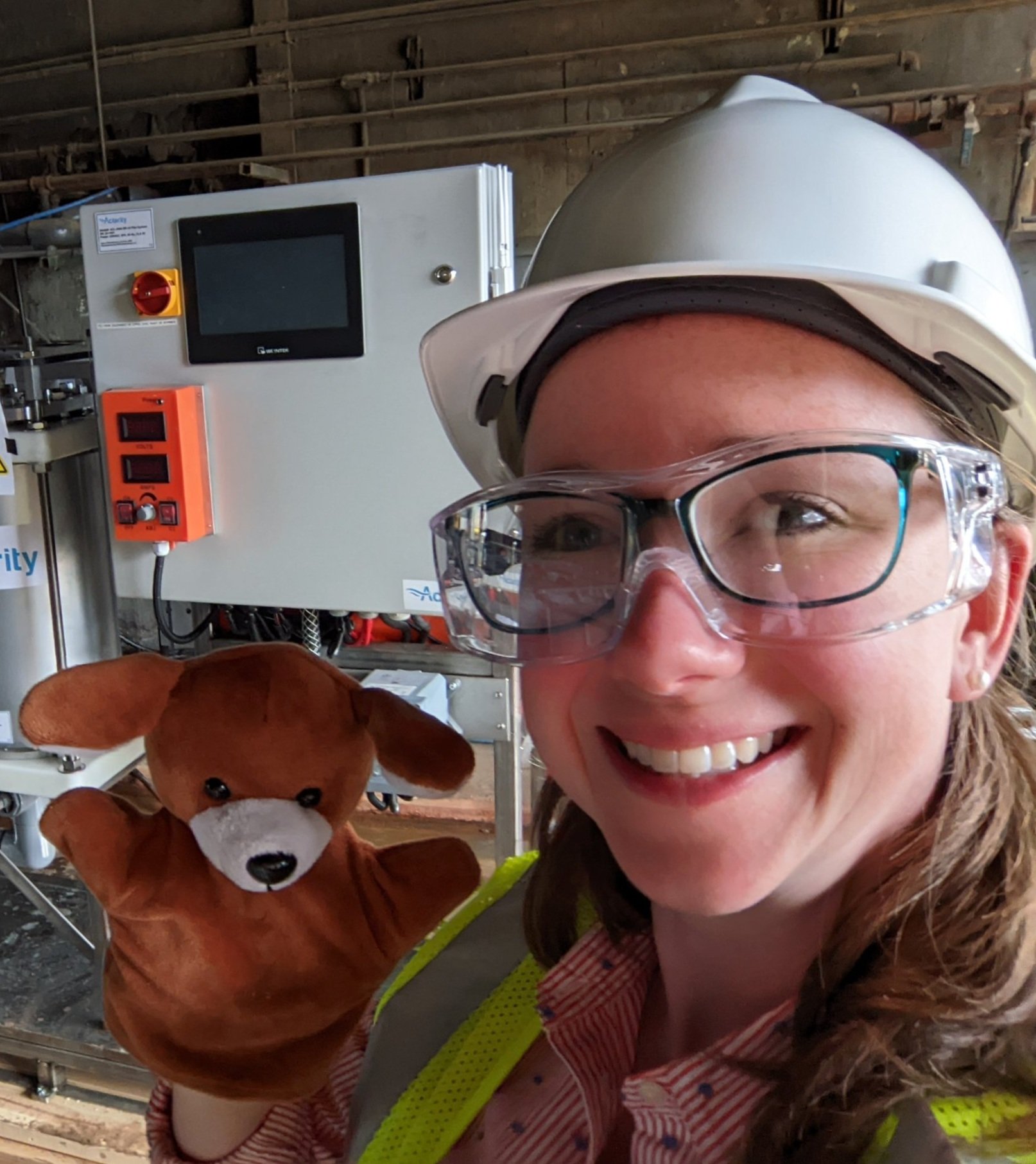Mom Boss (and Teddy) Take on the World's Strongest Chemical Bond
Julie Bliss Mullen, Co-Founder and CEO of Aclarity, is a mom of two. When she travels on business, she sends her kids a selfie of her and one of their stuffed animals. It keeps them connected while she is away and is a good example of Mom kicking it in STEM.
“Julie gets shit done.”
Julie Bliss Mullen, co-founder and CEO of Aclarity, says that it’s one of the best compliments she’s received from a colleague.
And it’s not only a compliment — it’s simply truth.
Julie co-founded Massachuesetts-based Aclarity to sustainably and cost-effectively clean the world's most challenging waters. She invented the company’s flagship technology as a PhD candidate at UMass Amherst, where she studied innovative water treatment technologies.
A 2019 Forbes 30 Under 30 recipient in science, Julie is determined to tackle per- and polyfluoroalkyl substances (PFAS). They’re found in Teflon products and fire-resistant materials. And it’s often present in landfill leachate. From there, PFAS makes it into our ecosystems — and our drinking water.
“PFAS are known as forever chemicals,” she explained. “They are extremely hard to break down; their bond is the strongest bond known in nature. They are harmful to humans and the environment, and, unfortunately, 98 percent of the US population has PFAS in their blood.”
It’s so enduring that, in 2022, the EPA issued a new health advisory indicating that PFAS should be limited to a certain amount of picograms per liter. According to Julie, this marks the first time ever that a contaminant in water has been limited at the picogram level.
“Typically we measure contaminants in water in milligrams, micrograms, and nanograms. But the EPA is now saying there’s new science showing health implications of PFAS at the picogram level. To put that in perspective, if there’s basically a drop of this chemical in an Olympic-sized pool, it’s considered toxic.”
Using electrochemistry, Aclarity breaks the carbon fluorine bond that is the hallmark of PFAS, leaving leftover fragments that are harmless. “We are the most mature PFAS technology out there, processing one gallon per minute through one of our reactors — without a recirculation process. We are field deployed and optimizing on all parameters.”
For Julie, the hardest part of the business has not been the science and technology. It’s been growing and managing a team.
“It hasn’t been natural for me,” she said. “I have mentors and advisors who I talk to every day. They’re looking out for the health of me and the company so we can stay unified. I’ve learned how to manage my expectations of things and people, to watch my tone and demeanor, to give people time and be sympathetic. I also try to make sure that, if I think someone is the expert in an area, then they are the one empowered to make the decision.”
Regarding diversity in the sector, Julie thinks the water industry has work to do. “I do my best to hire 50 / 50 (male / female ratio). I tried really hard to find a female board member, but I struck out. There just is not good representation of women in water. But we at Aclarity have the opportunity to make water sexy. We’re solving climate change and human health issues at the same time. Females are drawn to the impact. We want to change the world and do the right thing. Why not come to the water industry? Now is the time.”
More about Julie: Julie holds degrees in Environmental Engineering and Environmental & Sustainability Studies from Worcester Polytechnic Institute.She has been recognized as a 2019 Forbes 30 Under 30 recipient in Science, 2019 Lemelson-MIT Award recipient, and 2018 Innovator of the Year by NEWIN/NEWEA.


